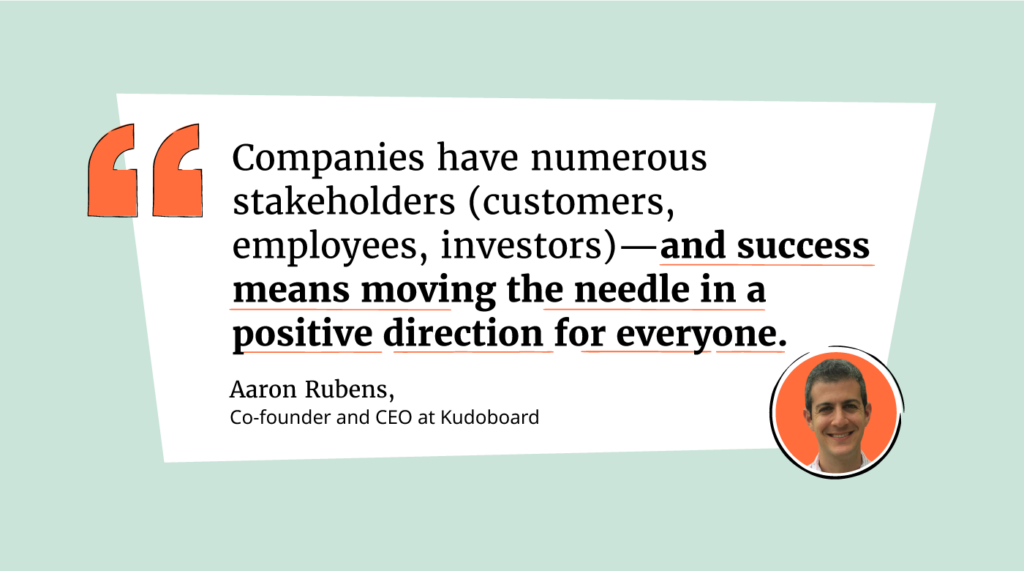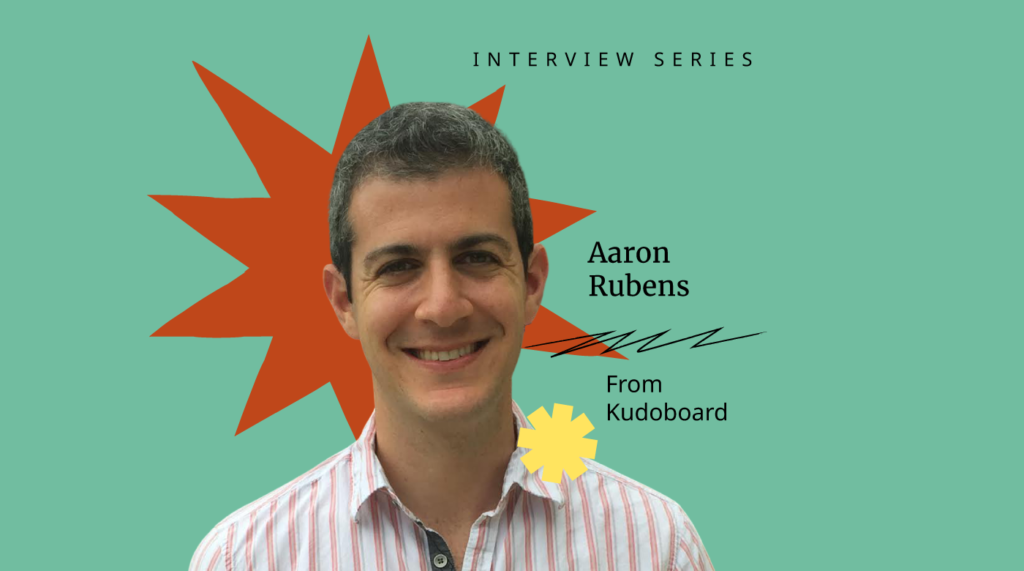We’re passionate about the world of work, and how we can make it better. To help satisfy our curiosity, we’ve launched an interview series where we pick the brains of experienced leaders, business owners, managers, and individual contributors to get their thoughts on how we can collectively build better workplaces.
We’d love to get to know you a bit better, tell us a bit about your backstory.
My early career was spent in education where I worked as a high school math teacher for Teach for America (and remained at my placement school for several years). During that time, I built systems for teachers to analyze their classroom data and ultimately became interested in building technology products at a larger scale to drive change. I later worked for Khan Academy building their college admissions resource and then started Kudoboard, an appreciation platform to help employees celebrate the moments that matter.
If we were to ask a friend to describe your personality to us, what would they say?
I am someone who likes to be in motion. When I go on vacation, I have a hard time sitting still and would prefer to be out exploring and trying new things. So friends probably describe me as adventurous or active (on a good day) and a bit much (on a not so good day!).
Thinking back to your career journey, what’s an interesting story that stands out?
During the early days of Kudoboard, we didn’t charge for the product because we thought that we’d grow virally and “figure out the money-side down the road.” We were struggling and eventually decided to start charging. To our great surprise, we saw an immediate bump in usage and traffic—which really hammered home the point that often price can signal quality. People can be very skeptical when something is free (i.e. “what’s the catch”), and that can lead to counter-intuitive results.
What’s the most impactful lesson you've learned over your career thus far?
Sometimes the best thing we can do is just keep showing up at taking at-bats. Whether working as a teacher or working in technology, it’s not often that lightning strikes immediately. We often have to try a bunch of different things before finding a pathway that works.
Thanks for giving us some insight into who you are! Let’s jump into things. When you hear the phrase “build a better world of work”, what comes to mind?

If you focus too much on any particular set of stakeholders and forget the others, it doesn’t work.
For you, what’s the main blocker you see as standing in the way of building a better world of work?
We are now a fully remote organization and have seen huge value in allowing our team to work from wherever they are most effective. It’s had tremendous benefits, but we are still navigating the complexities of keeping everyone on the same page when they aren’t in the same physical space.
Kudoboard itself is often used among remote and hybrid teams to build culture (celebrating moments that matter like work anniversaries, new employee welcomes, farewells, etc)—so that is certainly one thing we rely on to keep us feeling engaged.
What’s one thing within our control that we can practically do to build a better world of work today? And, how do you recommend going about it?
For organizations that are remote or hybrid, there is a lot of power in trusting your team. It’s not a panacea—without goals and accountability, trust doesn’t get us far.
But trust can make all the difference in employees feeling motivated vs. micromanaged.
One way I do this is to have 1-on-1s every couple of weeks with my team, but explicitly have it so that they set the agenda. The purpose is to allow them to drive the conversation where it will be helpful and I can unblock them rather than for me to use it to check on progress.
Another major element of trust is letting go. Particularly as a founder who has been with Kudoboard for a while now, I often have strong opinions on how things should work based on past experience in the organization. I remind myself at the start of each week the things that I need to focus on and the things I’m trusting my team to handle, and then try to stick to that. It’s frankly something I still struggle with, but understanding that it’s a weakness helps.
Can you share one thing you’ve experienced, seen, or read about that is leading us towards a better world of work?
With so many organizations now remote or hybrid, I’ve noted a real shift in the ways that companies have adapted to get information to their employees. More specifically, it’s become far more important to over-communicate everything because otherwise people will simply miss it without the inter-office chatter, and as a result, it can (and in many instances, has) lead to a flatter and more egalitarian workplace where information is disseminated systematically rather than ad-hoc.
I’m curious, thinking about building a better world of work, is there a company and/or leader who stands out to you as someone we should follow? If so, what are they up to?
Cloudbeds is a leader in the hospital management industry and has grown rapidly to 700+ employees across 40+ countries. Their entire team is fully remote, and I’ve been incredibly impressed with the way their leadership thinks about building a remote-first culture. In particular, they’ve done a great job figuring out the profile of employees who thrive in a remote-first culture and really building their recruiting and onboarding processes around that.
How can our readers follow your work?
They can visit our organization’s blog for updates.
Thank you for adding your voice to People Managing People’s interview series on How to Build a Better World of Work!
Add your voice to the conversation
Join our interview series and share your ideas for how we can build a better world of work!

